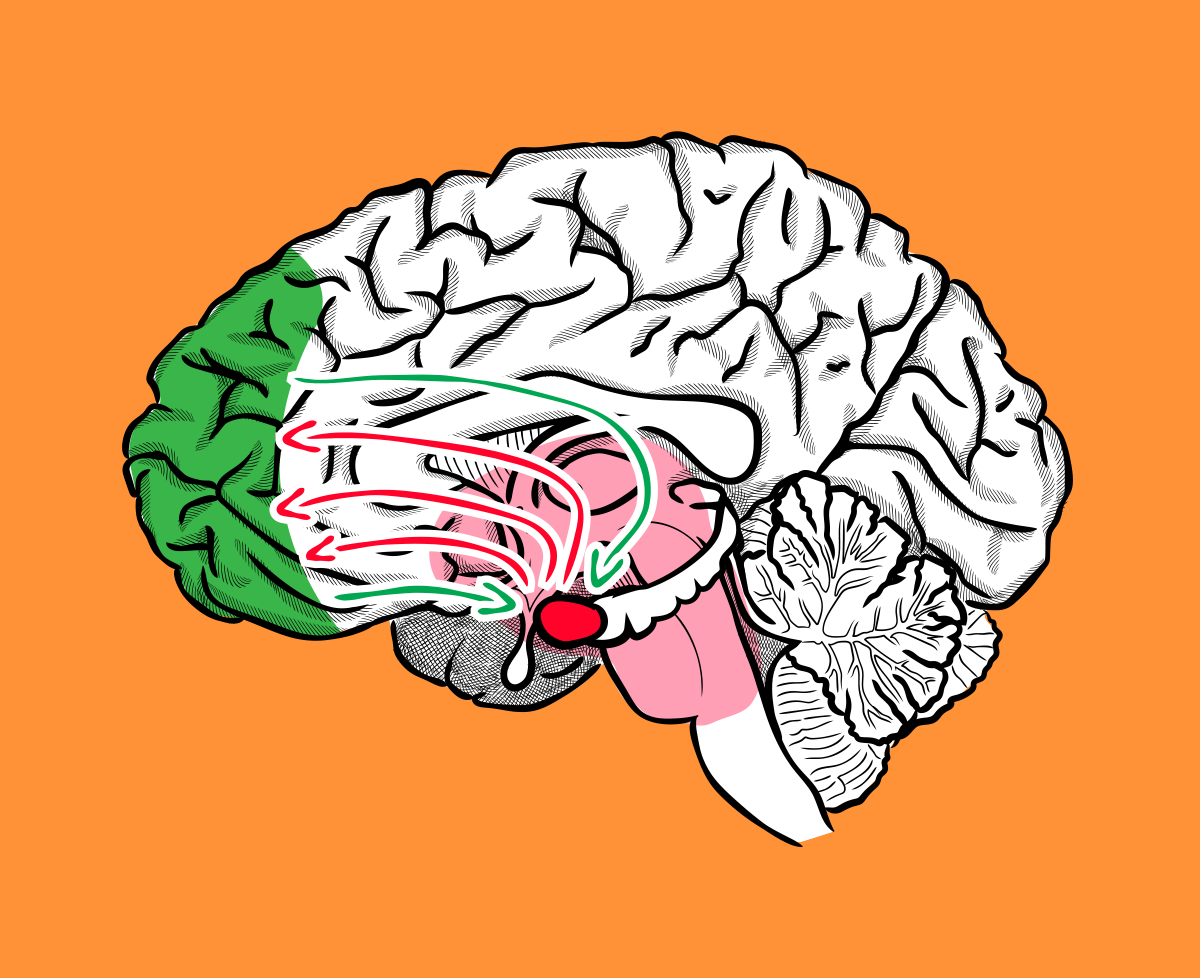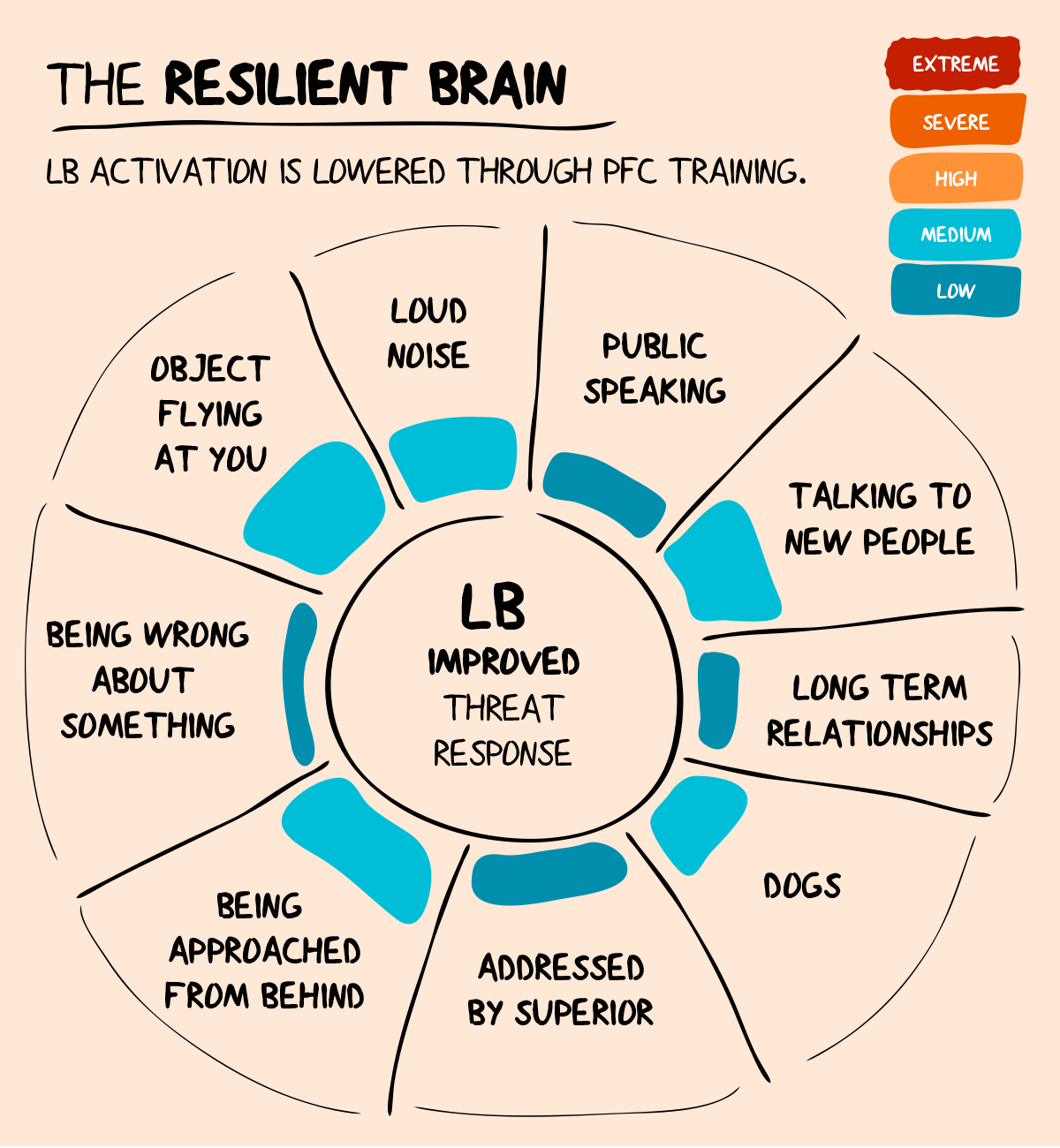Optimising Connections and Creating A Healthy, High-Performing, Resilient Brain
Source: HelloDriven.com
“Psychological resilience refers to the ability to use personal qualities to withstand pressure” - David Fletcher
The brain is full of connections that encode our personality, knowledge, beliefs, thoughts, and actions.
When we’re born, the brain comes ‘preconfigured’ with certain connections. Then, through early childhood, the brain learns and adapts to our experiences.
Because the brain is adapted to survive physical threats, like wild animals hunting, the brain isn't prepared to deal with the kind of complex challenges we face these days - by default it prefers to get enraged and fight, or run away.
By the time we’re adults, the brain full of old connections that can lead to unhelpful thoughts and behaviours.
🎭 The relationships between the PreFrontel Cortex(PFC) and the LimBic brain (LB)
.
The LB has a lot of control over the PFC - if it detects any sense of danger - panic, fear or anxiety, it reduces functioning of the PFC - making it harder to solve problems, think clearly and respond constructively while on your feet.
Frequent and strong activation of the LB, which is something we can almost guarantee is happening during a global pandemic, can result in:
Creation of powerful fear-based memories from traumatic experiences, leading to long-term risk of stress-related diseases and PTSD
Accumulation of stressful experiences that result in burnout and feeling overwhelmed
Causing over-awareness of and sensitivity to danger, even in non-dangerous situations, leading to anxiety disorders
🛡 Strengthening the right connections
📈THE UNTRAINED BRAIN
Here you can see an untrained brain of someone that gets from a High to Extreme level of LB activation for most of these events.
Public speaking, loud noise feeling like you did the wrong think and being addressed by a superior are all events that may occur as a threat. The above is a diagram of an untrained brain of someone that gets from a High to Extreme level of LB activation for most of these events.
Imagine being this person. Maybe this is like you? What do you imagine its’ like for this person, or what is is like for you when you experience any one of these events?
Fortunately, we can teach the PFC to control the LB. As we practice resilience skills and techniques, we build connections between the PFC and the LB, connections that teach the LB what it should and should not be activated by.
The less the LB activates, the better we are at embracing and advancing despite difficult or challenging situations and the more calm and in control we become.
📈THE resilient brain
Here we see Low and Medium levels of LB activation, which is better for feeling calm and in control.
CreATING NEW CONNECTIONS
The brain can be rewired to form new connections, break old habits and unhelpful ways of thinking, and build new, healthy and resilient habits.
How does it work?
Learn new skills that mange the activation of the limbic brand (LB) and actively maximise the potential of the prefrontal cortex (PFC)
Practice, practice, practice
The combinations of these two aspects make you the master of your brain, helping you keep this biological machine strengthened.
Take a moment and reflect on where you experienced practicing something new, and over time you naturally get better at it.
Repetition builds new neural connections. It’s exactly the same for building resilience and mental agility. It also means we can’t just read about it, we need to practice it and live it for our brain to become stronger.
🗜 want to learn more?
If you’d like to learn more about the six strategies for building mental resilience, to be calm and in-control, to have healthy response to the circumstances in life such that you can advance as a leader and achieve your dreams while faced with adversity, contact us by using our online contact form, send an email with your contact details or book a no-obligation consultation with Kylee Stone here.
Reference: Hello Driven, the leaders in scientifically proven resilience assessments & training programs




